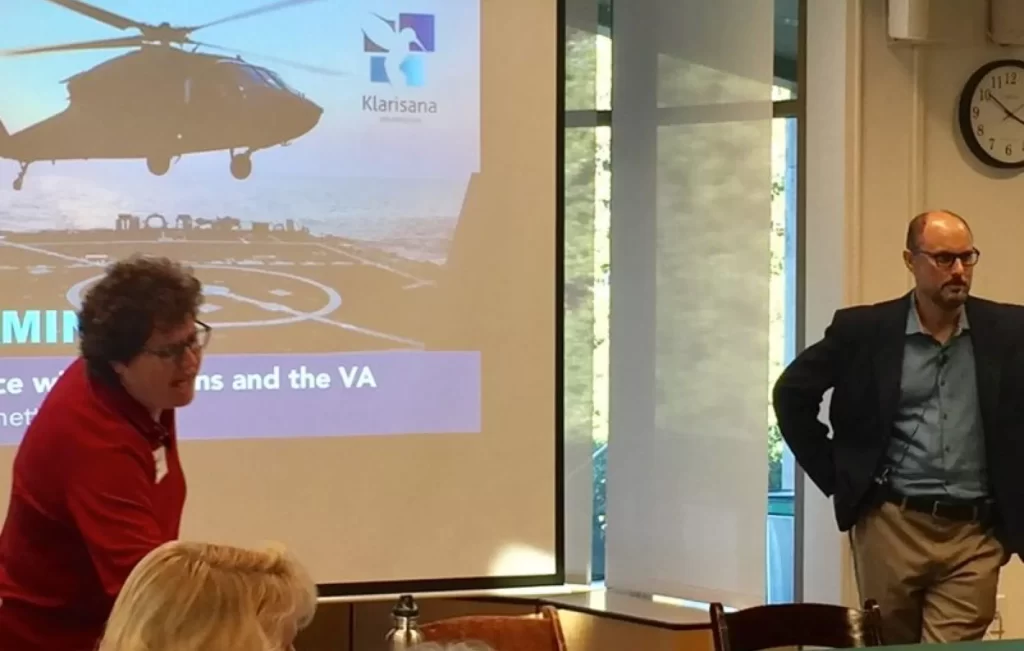This last weekend I had the opportunity to attend the KRIYA Ketamine Research Institute annual conference (kriyainstitute.com). This was a great opportunity to meet with ketamine researchers and clinicians from around the world. We were able to compare notes, review recent studies related to ketamine, and discuss best practices regarding the use of ketamine for depression, post-traumatic stress disorder (PTSD), other mental health conditions, and chronic pain. As always, Drs. Terry Early and Phil Wolfson had great talks on the use of ketamine-assisted facilitated psychotherapy. It is remarkable to note the dramatically growing recognition of the importance of ketamine’s role in medicine. Dr. Jennifer Winegarden gave an especially eye-opening talk on the use of ketamine in hospice medicine and end-of-life care. One of the frequent points discussed was how narcotic pain medications can be dangerous and counterproductive. Ketamine therapy stands to really change the whole paradigm of how chronic pain can be managed.
Ketamine trends
As always, Drs. Terry Early and Phil Wolfson had great talks on the use of ketamine-assisted facilitated psychotherapy. It is remarkable to note the dramatically growing recognition of the importance of ketamine’s role in medicine. Dr. Jennifer Winegarden gave an especially eye-opening talk on the use of ketamine in hospice medicine and end-of-life care. One of the frequent points discussed was how narcotic pain medications can be dangerous and counterproductive. Ketamine therapy stands to really change the whole paradigm of how chronic pain can be managed.
Psychedelic effects of ketamine
Another fascinating topic of discussion was whether the psychomimetic (“psychedelic”) effects of ketamine are an adverse reaction or actually part of the therapy. Most of the clinicians who I spoke with would agree with me that the mild alterations in perception and feeling of “disconnection” that a patient experiences during a ketamine infusion is very therapeutic and actually a vital part of the therapy. This phenomenon is what we at Klarisana refer to as the Psychotropic Therapeutic Response, or “PTR.” There is clearly a complex biochemical response occurring that involves the NMDR receptor but the mechanism of action goes far beyond that. In addition to ketamine’s effect being more complex on a biochemical level, I believe that the experiential quality of a ketamine infusion is critical to success. That is an element that we will begin to address in our upcoming PTSD study but will also try to look at it more closely in a study later this year.
Ketamine therapy for heroin addicts
Another lecture that was fascinating was by Dr. Evgeny Krupitsky from St. Petersburg, Russia. He presented the results of a couple of his studies looking at ketamine therapy in patients with heroin addiction. He has been able to show a decreased level of relapse in heroin users after ketamine therapy. In many of our patients with chronic pain who respond to ketamine therapy, we note a dramatic decrease in the reliance on narcotic pain medication (hydrocodone, oxycodone, etc.). I think this observation has profound implications for patients with chronic pain and for society at large. Given the prescription narcotic abuse epidemic and the heroin epidemic in this country, I hope that academic centers will aggressively study the role that ketamine could play in chronic pain management.
Veteran case studies
Finally, on the second day of the conference, I presented a case series of five combat veterans who suffer from severe PTSD. All of them have had a remarkable improvement in their symptoms and their quality of life after ketamine. We had a very nice discussion about the challenges facing America’s veterans with regard to mental health services and primary healthcare.
What’s next?
I left the conference feeling more energized to raise awareness among lawmakers as to how ketamine can positively improve the veteran suicide rate and the rates of domestic violence in families who have a veteran with PTSD. At the same time, it does make me frustrated to think about how many more veterans and non-veterans alike will complete suicide in the coming months never knowing that ketamine therapy exists. In any case, KRIYA was again an amazing experience. Dr. Raquel Bennett and her team did a great job of organizing the event and continue to do an amazing job of creating a forum for leaders in the field of ketamine therapy to collaborate and develop the field. I will definitely look forward to KRIYA 2017!




